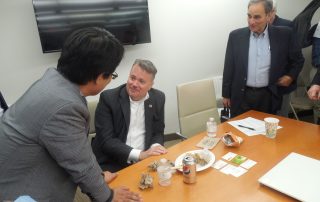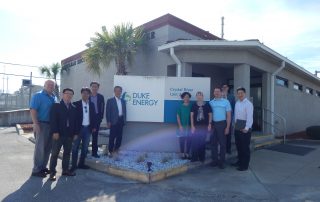At present, dialogue on nuclear technology in Washington, DC has tended to focus on issues related to nuclear materials security, nonproliferation, and arms control issues, rather than nuclear power. As a result, the policy community in Washington tends view nuclear power technologies with some skepticism. Given this environment, it is GABI’s commitment to promote, educate, and enhance the understanding of the vital role of nuclear power from the perspective of ensuring energy security, reliability and sustainability.
Demystifying the Part 810 Authorization Process
Part 810 export control regulations, which deal with the transfer of unclassified nuclear technical information and assistance, are handled by the Department of Energy. Recent Part 810 authorizations for Saudi Arabia were conducted in accordance with law, despite claims by the media that the White House was illegally circumventing export control rules in permitting nuclear









